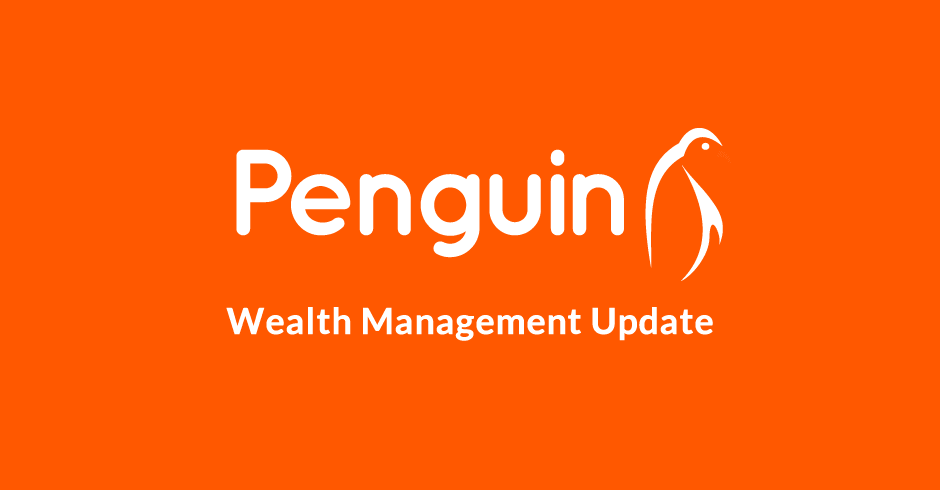Wealth Management Update – February 2016
The year so far …
The market tremors we witnessed in 2015 seem to have followed us into the early stages of this year, with performance in every market remaining volatile.
The only sector that seems to have escaped these New Year wobbles is the property market. It has been reported that asking prices have risen by up to 0.5% in the first two weeks of the year, and are set to increase further. Accordingly, we have recently increased our holdings in both UK and Global property, with this sector now making up a large percentage of our low risk portfolio. We hope to take advantage of any spikes in performance whilst keeping our volatility as low as possible.
The increasing number of landlords putting their buy-to-let properties on the market to avoid the new stamp duty charges that apply to such properties from April may well be the cause of this anticipated upwards movement. Landlords will have to pay an additional 3% on any additional properties they purchase or ‘swap’ with existing holdings, so I can see their point.
Caravans and houseboats are exempt from stamp duty however, so if you are thinking about buying an additional property, maybe this is the way to go!
Going for gold
Gold has been a hot topic this year already, with reports that the price has risen by 2.7% since the start of 2016. The current volatility of the stock market is certainly a factor in the success of this particular sector, as is the reduction in oil prices in the latter part of last year.
Whilst mining as a whole is said to be in the worst downturn in a decade, the fact that the gold industry was streamlined in 2011–2013 means that gold is the high performer across the mining sector and reports are cautiously optimistic for 2016. There has been concern that the recent increase in US interest rates may negatively affect this growth, as investors are lured away from non-interest-bearing commodities. But, providing the USA does not dramatically increase its interest rates but sticks to slow and steady rises, this should not negatively affect the price of gold.
As you are all aware, we hold gold in our high risk portfolio as a balancer to the stock markets. When the stock markets fall, gold rises and vice versa, as is proven time and time again. It is a vital holding that gives great diversity to investment portfolios and can be relied upon to stabilise those unavoidable moments of downturn.
Pension exit charges capped
Whilst the focus on pensions waned in 2015, to be replaced by the IHT announcements that took centre stage, it was short-lived and attention seems to be firmly back on pensions.
The Treasury has announced an intention to legislate to cap excessive early exit charges on pensions, as, surprisingly, no notice was taken of a friendly advisory to the pension companies that, morally, this was not a great way to treat their customers!
From FCA data it has been reported that up to 16% (700,000) of investors who wish to access their dutifully saved pension will face an excessive exit penalty of around 40%, which I am sure will discourage them from moving away from their existing provider. These charges apply if the current pension provider does not offer the more flexible options for pensions that were introduced in April 2015. So, to be clear, they will not allow you to access your money how you choose and will charge you excessive penalties to move it to a company that does!
Although no fixed percentage or monetary amount has yet been announced, the suggestion is that the cap will be set at around 2.5% of the fund value. The official statement is that “Any exit penalties should be limited to no more than a proportionate administration charge based on the actual costs incurred”.
Whilst the Treasury have come under scrutiny for bowing to the tabloids regarding this change, it is long overdue and should have been considered at the same time as the other announcements in April 2015.
So, if you have a pension with a high exit penalty that is preventing you from transferring, you may be able to move it as you choose in the near future without an extortionate charge! Watch this space …
Pension tax relief for high earners
Information has been released to suggest that the government is on course to scrap pension tax relief for higher earners.
We currently receive tax relief on our pension contributions based on whether we are a basic, higher or additional rate tax payer at the rates of 20%, 40% or 45%. However, changes are due to be made in the March budget that will introduce a “flat rate” of between 25% and 33% for everyone, starting in 2017. This new flat rate would raise more than £6bn per year for the government, with higher and additional rate taxpayers missing out on as much as 20% of tax relief. It will, however, encourage those on lower incomes to save via their pension.
Whilst there would still be an incentive to save via a pension because of the tax relief element, those higher earners may be looking to place their investments elsewhere, and certainly this is a conversation we may be having with some of you if these changes come into effect.
This is definitely one to keep an eye out for in March!
China growth figures – real or not real?
China has recently published annual growth rates for the year 2015 and has declared that these were 6.9%! This is hard to believe, considering the crash China caused in the markets last year.
These figures are widely disputed, and it has long been thought that Beijing’s official statistics stretch the truth somewhat. However, even with exaggerated numbers, China is still experiencing its slowest rate of expansion in 25 years.
The country’s transition to consumption-driven growth continues to be a difficult one, with Beijing cutting interest rates a total of five times throughout 2015 in a bid to revive growth in the economy. Although this is still proving to be a difficult process, reported growth was highest in the three months leading up to December 2015, indicating that it has stabilised compared with earlier in the year.
Whilst things may have improved, it will continue to be a long and rocky road to where China eventually wants to be.
China – further comment
If the UK had the growth that China is reporting, we would be jumping for joy as the economy would be in a strong position. However, as China’s annual growth figures have been higher than they currently are for more than the last two decades, the world is afraid that China is about to experience a meltdown that would impact the rest of the world. In fact, China is just experiencing a slowdown.
China’s economy is changing; as their population becomes used to increased disposable income, production of many goods is being moved away from China, so the country’s exports are down. It simply cannot continue to be as productive as it has been in the past, which will lead to a natural decline in their growth figures. The slowdown in their annual growth is something that we should expect to continue, however it should not be seen as a negative outcome but one where China’s growth will normalise to fall in line with the rest of the world.
China – even more comment
Whatever the growth levels in China we must remember one thing: the world cannot handle the present levels of Chinese growth for long. There really is only so much “stuff” in the world. There really is a cap on what the Earth can produce. The ±6% growth that China is currently achieving would result in a doubling of the size of the economy in just 12 years. Do you really think that is a good idea? Of course not.
We must understand, or rather the politicians must understand, that if global growth could settle out at 1% p.a., it would be sustainable, and the economies of the world could grow far more effectively. Unfortunately, the politicians need growth to outweigh debt, and so will always be pushing for growth.
Oil prices – so what’s the beef?
Tesco is selling petrol at less than £1 per litre. The cost of filling an oil tank at home is less than half what it was a year ago. Lower fuel prices mean companies’ operating expenses fall, which means more profit and more stability … so what’s the problem with low oil prices?
For most of us, lower oil prices are a good thing. They keep costs down, reduce inflation and mean that we have more to spend on other things (or save). But for some people lower oil prices are bad news.
They are bad news for the oil companies. It still costs BP the same amount to produce a litre of petrol but now they get paid less for it, so profit is squeezed. Most UK and US pension funds rely on healthy dividends, and they invest in oil companies because historically these have produced good dividends. This is likely to change this year, putting more strain on many pension funds.
However, the big losers are governments. Lower oil prices mean less income from taxes. Lower tax income means less spending or more borrowing, both of which are disliked by the markets, and it is this that is helping to push down investment markets.
Book of the month
Do No Harm: Stories of Life, Death and Brain Surgery by Henry Marsh is a fabulous book. Marsh is a neurosurgeon and the book is about his life in practice. If you have recently been bereaved I would not recommend you read the book because of the clinical way that Marsh discusses his work, but if not, it is a very interesting read indeed.
The book describes what it is like to be a brain surgeon. It gives an insight into the mind of someone who actually does look into the minds of others. I never really understood how so many doctors could have such a poor bedside manner until I read this book – suddenly I realised that if I were doing the job, I would too.
Best Savings Selections
Top Three No Notice Accounts without Bonus
| Name | Contact | £1 Gross % | £500 Gross % | £1k Gross % |
| Virgin Money | Via branch | 1.41 | 1.41 | 1.41 |
| ICICI Bank UK | Via branch | 1.39 | 1.39 | 1.39 |
| RCI Bank UK | www.rcibank.co. uk |
1.65 (min £100) | 1.65 | 1.65 |
Top Three Monthly Interest Accounts
| Name | Contact | £1k Gross % | £5k Gross % | £25K Gross % |
| Charter Savings Bank | www.chartersavingsbank.co.uk | 1.83 | 1.83 | 1.83 |
| Charter Savings Bank | www.chartersavingsbank.co.uk | 1.74 | 1.74 | 1.74 |
| RCI Bank | www.rcibank.co.uk | 1.64 | 1.64 | 1.64 |
Top Three Cash ISA’s
| Name | Contact | £1 Gross % | £10 Gross % | £100 Gross % |
| Mansfield BS | 01246 202055 | 1.55 | 1.55 | 1.55 |
| Virgin Money | www.virginmoney.com | 1.51 | 1.51 | 1.51 |
| Al Rayan Bank | 0845 6060 786 | n/a | n/a | 2.00 (min £250) |
Please check with the terms and conditions before opening any account. If in doubt consult with your financial adviser directly as the above are for information only.
Source: Moneyfacts Magazine February 2016 Edition









